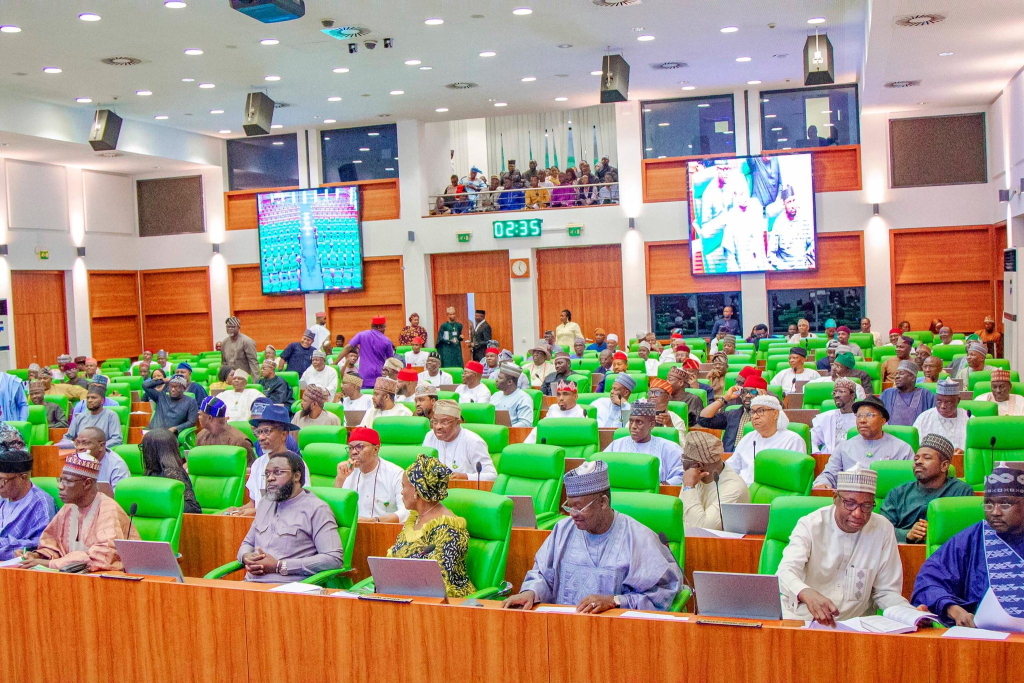
IMPI faults IMF economic forecasts for Nigeria, cites positive domestic indicators,
By Babajide Komolafe
The Independent Media and Policy Initiative (IMPI) has sharply disagreed with the latest economic projections for Nigeria issued by the International Monetary Fund (IMF), calling the Fund’s forecast an “abuse of data aggregation and interpretation”.
IMPI’s stance, contained in a statement signed by the Chairman, Dr. Omoniyi M. Akinsiju highlights significant divergences between the IMF’s outlook and what the group describes as the “reality of the Nigerian economy,” pointing instead to positive trends supported by local data and government reforms.
The IMF’s forecast, published in its World Economic Outlook Report, projected a significant rise in Nigeria’s headline inflation rate to 37 per cent in 2026, up from a projected 26.5 per cent in 2025. The Fund cited loose financial conditions, high international food prices, and the widening parallel market premium as rationale.
Conversely, the World Bank projected Nigeria’s inflation to ease to 22.1 per cent in 2025, down from 26.6 per cent in 2024, moderating further to 15.9 per cent by 2027.
IMPI noted its own research showing headline inflation falling from 34.80 per cent in December 2024 to 24.48 per cent in January 2025, before inching up to 24.23 per cent in March 2025.
Regarding economic growth, the IMF downgraded Nigeria’s forecast for 2025 to 3.0 per cent and for 2026 to 2.7 per cent, citing projected lower global oil prices as a significant risk.
The IMPI questioned this rationale, particularly as Nigeria diversifies away from oil dependency. The World Bank offered a more optimistic view, projecting growth of 3.6 per cent in 2025, building on an estimated 3.4 per cent in 2024, and strengthening to 3.8 per cent by 2027. The World Bank credited the federal administration’s sustained economic reforms.
IMPI in the statement said it aligns with Nigerian analysts and policymakers who have also expressed astonishment and disputed the IMF’s projections.
The group highlighted several positive domestic indicators not fully accounted for by the IMF, including the Central Bank of Nigeria’s sustained management of monetary expansion, interventions in supply-side constraints, and exchange rate stability efforts.
It also pointed to enhanced security in food-producing states, duty and levy exemptions on food imports, and growing fiscal discipline. Macroeconomic reforms such as the removal of fuel subsidies, cessation of CBN deficit financing, and unification of exchange rates are acknowledged by both the World Bank and IMF as steps that have enhanced Nigeria’s resilience.
Further evidence cited by IMPI includes the CBN’s March 2025 report showing continued expansion in economic activities, indicated by a Purchasing Managers’ Index (PMI) of 52.3 percentage points.
Crucially, IMPI reported that almost all companies listed on the Nigerian Stock Exchange that suffered losses in the first quarter of 2024 due to naira devaluation are now back to profit-making in the first quarter of 2025, boosted by the naira’s marginal appreciation and stability. Examples include MTN Nigeria, Nestle Nigeria, BUA Cement, Champion Breweries, and Dangote Cement, all reporting significant turnarounds in profitability.
Additionally, Nigeria’s non-oil exports surged to $1.791 billion in the first quarter of 2025, a 24.75 per cent increase year-on-year, with export volume jumping by 243.44 per cent. This follows a record $5.456 billion in non-oil exports in 2024.
Consequently, the IMPI averred that the benefits of the federal administration’s reforms will permeate the population, potentially leading to significant reductions in poverty and food insecurity. The group concluded by aligning with the Minister of Finance’s commitment to achieving a seven per cent GDP growth, viewed as a panacea for poverty and a path to a flourishing middle class.
The post IMPI faults IMF economic forecasts for Nigeria, cites positive domestic indicators appeared first on Vanguard News.
,
The Independent Media and Policy Initiative (IMPI) has sharply disagreed with the latest economic projections for Nigeria issued by the International Monetary Fund (IMF), calling the Fund’s forecast an “abuse of data aggregation and interpretation”.
The post IMPI faults IMF economic forecasts for Nigeria, cites positive domestic indicators appeared first on Vanguard News.
, , Idowu Bankole, {authorlink},, , Vanguard News, May 7, 2025, 2:37 am










